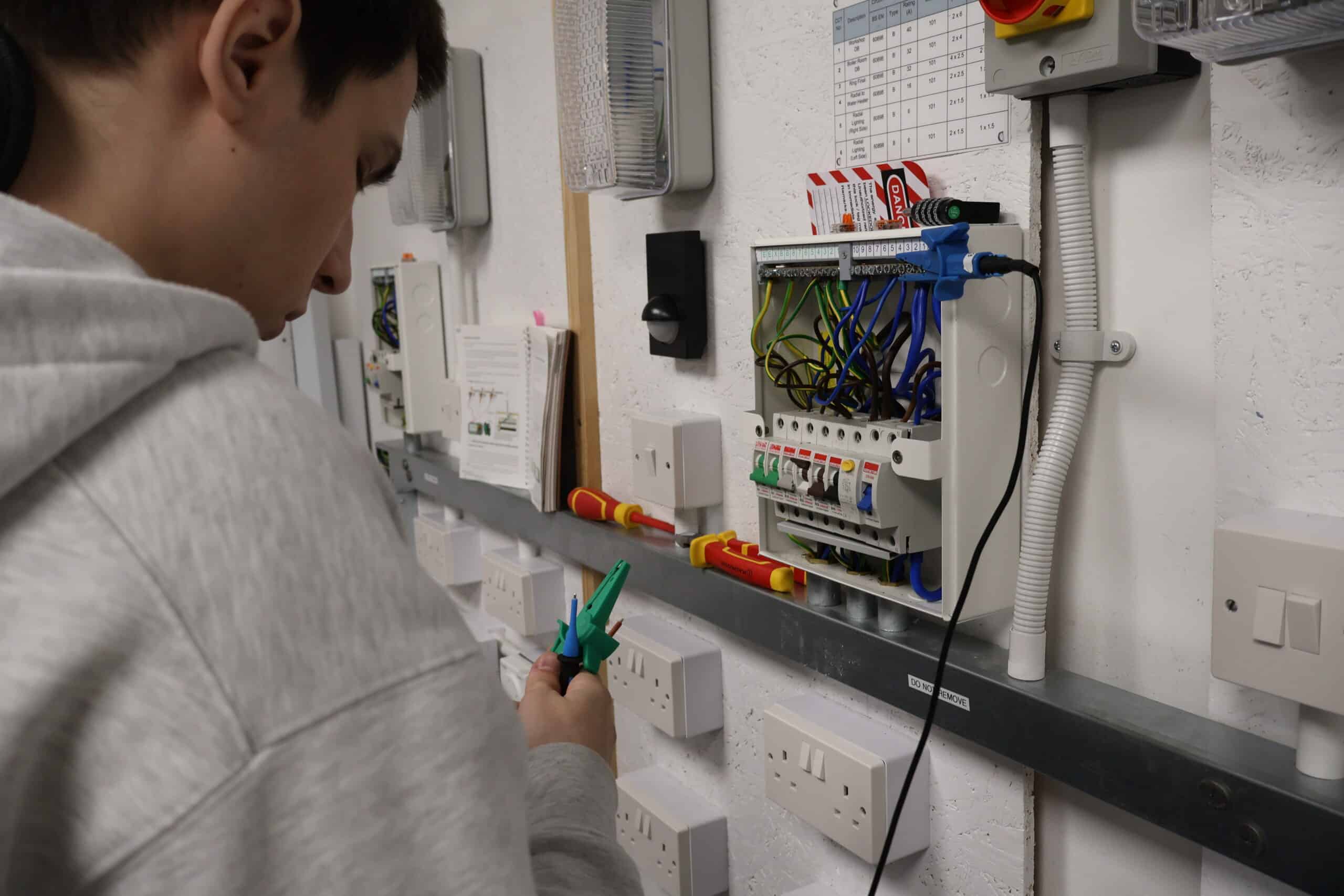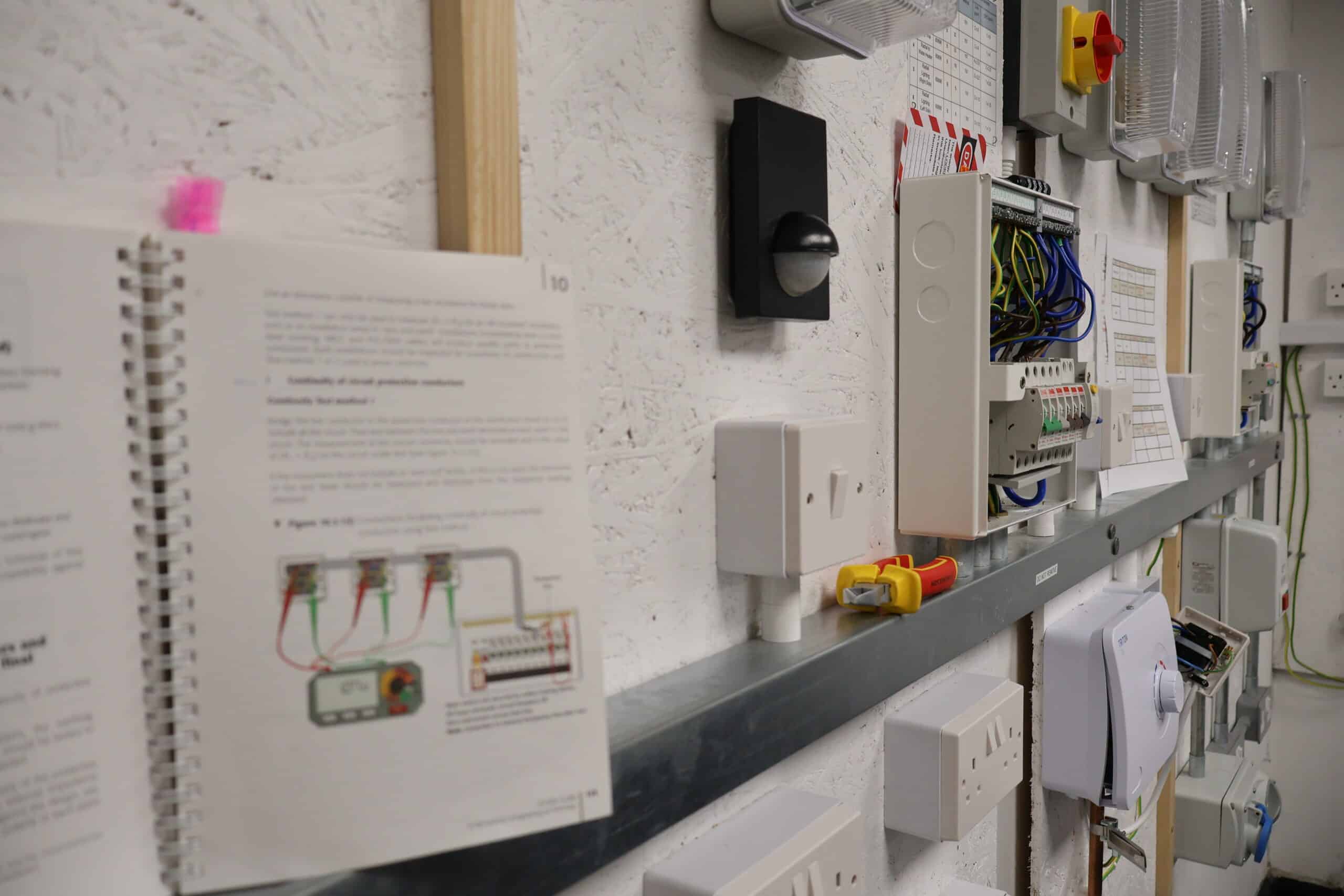
How Long Does It Take to Become a Qualified Electrician in the UK? (2026 Guide)
Tolga Aramaz: CEO, Learn Trade Skills When people come to us looking to change career, this is almost always the
Upon successfully completing the Professional Electrician Package Course, you have two distinct pathways for the next stage in your journey.
Take the next step by enrolling in a 1-day CITB Health & Safety Awareness course. This certification not only enhances your safety knowledge but also qualifies you for an ECS White Card, officially recognising you as an “electrical labourer.”
Embark on a hands-on journey, gaining two years of field experience. Join a Competent Persons Scheme like NICEIC or NAPIT, empowering you to self-certify your installations, work independently, and unlock significant income opportunities.
Start your practical experience with entry-level positions, working under the guidance of seasoned electricians. This hands-on training is crucial for honing your skills and knowledge, preparing you for more intricate projects in the future.
Consider volunteering or interning with local electrical companies or organisations. This not only provides valuable exposure to various facets of the industry but also allows you to network, learn from professionals, and apply your skills in real-world scenarios.
Once you have accumulated a minimum of five years of experience, you can seamlessly progress to step 3 of your journey.

Alternatively, for those seeking an expedited route to becoming an electrician, the apprenticeship option is available. Complete the Level 2 Electrotechnical Diploma exams and enrol in the Level 3 Electrotechnical Craft Diploma (Level 3 2365), a comprehensive programme that can be pursued on a full-time basis. This course typically spans for 7 weeks long, providing in-depth training and practical experience. Upon successful completion of the diploma, you can seamlessly transition to step 3 of the process, advancing further in your journey toward becoming a qualified electrician.

Tolga Aramaz: CEO, Learn Trade Skills When people come to us looking to change career, this is almost always the

If you’re already a fully qualified electrician, 2026 isn’t about learning the basics again. It’s about deciding what to add next so you stay compliant, widen the type of work you can take on, and keep your skills relevant as the industry moves fast. In this guide, we break down the best electrical courses for fully qualified electricians in 2026, who each course is for, and how to choose the right one based on the work you want to do.

This 2026 electrician career plan explains the best route through electrical courses in the UK, from beginner level to fully qualified electrician status. It covers which electrician qualifications employers respect, why structured electrical training matters, and the step-by-step Gold Card pathway including Level 2 and 3 (2365), 18th Edition (BS 7671), Inspection and Testing (2391-52), NVQ Level 3, and the AM2 assessment. You’ll also learn how long it typically takes to qualify full-time vs part-time, what real site work progression looks like, and the career outcomes and earnings you can expect once you’re qualified and eligible for the ECS Gold Card.
“Lorem ipsum dolor sit amet, consectetur adipiscing elit. Ut pretium tristique purus nec consectetur. Nulla feugiat eget tellus aliquam scelerisque. Sed eget luctus enim, sed mattis enim. Lorem ipsum dolor sit amet, consectetur adipiscing elit. Ut pretium tristique purus nec consectetur. Nulla feugiat eget tellus aliquam scelerisque. Sed eget luctus enim, sed mattis enim.Nulla feugiat eget tellus aliquam scelerisque. Sed eget luctus enim, sed mattis enim. Lorem ipsum dolor sit amet, consectetur adipiscing elit. Ut pretium tristique purus nec consectetur. Nulla feugiat eget tellus aliquam scelerisque. Sed eget luctus enim, sed mattis enim.”
William Goss
Electrician course
11/11/2024